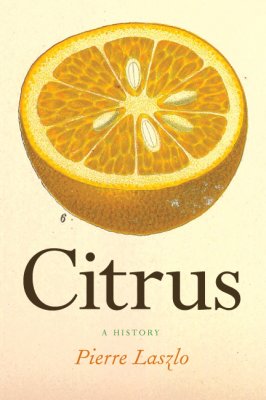Editorial Reviews
Review
New Scientist :
“Did you know there are a billion citrus trees under cultivation, or that grapefruit juice may potentiate the effects of Viagra? Citrus mines over two millennia of history to explore the spread of these fruits out of Asia, their commercialisation in the United States, and [their] enduring symbolism the world over.”—New Scientist
Sunday Times (UK) :
“Stimulating. . . . Laszlo, a retired French chemist, takes us on a journey from the orangeries of Versailles, via the limes of the Royal Navy to the citriculture of modern Florida. It was only in the 1920s, he tells us, that orange juice became ‘an integral part of the American breakfast’, after the great flu epidemic of 1918-19. Laszlo shows that the citrus fruit ‘is a treasure trove of chemicals that are highly useful to humankind’—which also happens to taste wonderful.”—Sunday Times (UK)

